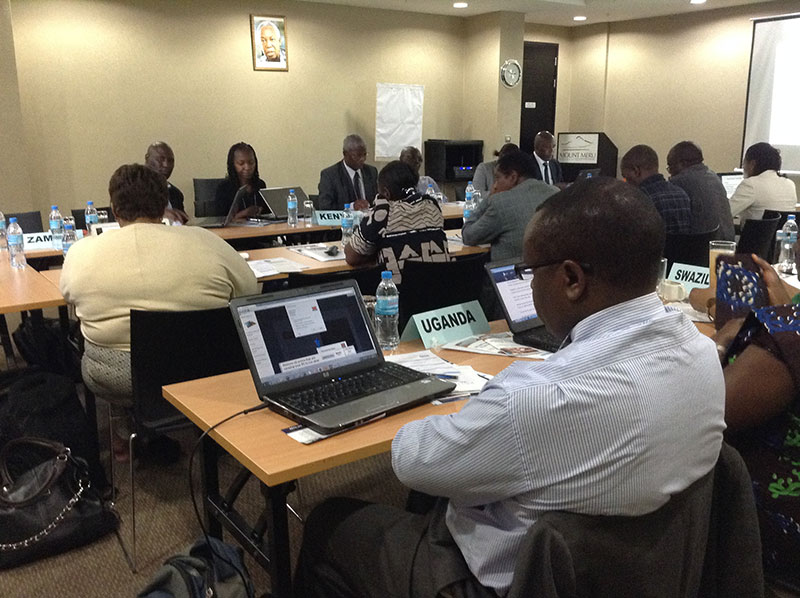News

The AFIDEP-led SECURE Health programme held a consultation session on November 30, 2014 with Directors of Health and Directors of Research in 10 African countries, who are members of the East, Central and Southern Africa Health Community (ECSA-HC). The meeting discussed the efforts of the 10 countries in implementing various resolutions of the ECSA-HA’s Health Ministers Conference on research utilization in their ministries since 2009.
From country updates, most had made progress in developing national health research agenda and priorities, but it was not clear how well these would enable research use. Countries decried three main weaknesses hampering increased use including:
- Weak technical capacity of staff to source and apply research,
- Inadequate budgets for supporting research synthesis and uptake, and
- Weak links between Ministries of Health and research institutions.
The Directors identified and committed to make the following recommendations as part of their efforts to contribute to enabling increased research use:
- Establish centres for the documentation of health research conducted within their countries to enable ease of access to local health resarch,
- Establish/strengthen health advisory committees with appropriate mix of researchers and technocrats to regularly advise the Directors of Health, Principal Secretaries and Ministers of Health,
- Strengthen collaboration between national research institutions, universities, other stakeholders (NGOs, CSOs, FBOs, etc.) and other research institutions and policy makers. Also, involve policymakers right from initiation of research projects to enhance ownership of findings that will then inform policy,
- Advocate for increased funding for implementation research in their countries, which is needed for informing policies and programmes, and
- Strengthen capacity for generation and utilization of research to inform policy and translate into practice.

